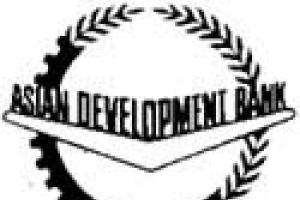Two weeks ago, the WRM and Oilwatch disseminated an open letter to David Kaimowitz, Director of the Center for International Forestry Research (CIFOR), expressing our concern over a CIFOR research paper "which appears to give green credentials to two activities that are at the core of deforestation and forest degradation: oil and mining." (see letter at http://www.wrm.org.uy/deforestation/oil/Cifor.html )
Large-Scale Tree Plantations
Industrial tree plantations are large-scale, intensively managed, even-aged monocultures, involving vast areas of fertile land under the control of plantation companies. Management of plantations involves the use of huge amounts of water as well as agrochemicals—which harm humans, and plants and animals in the plantations and surrounding areas.
Other information
31 July 2003
Two tiny moths are at the centre of a social and environmental confrontation in New Zealand. In West Auckland, people and the environment are being subjected to aerial spraying with dangerous chemicals to protect pine plantations against the attack of the painted apple moth (Teia anartoides). In South Auckland, eucalyptus plantations are under attack from the gum-leaf skeletoniser (Uraba lugens) and it is yet unknown if chemical control will be used there.
Bulletin articles
31 July 2003
Two plantations managed by Thailand's Forest Industry Organisation (FIO) are currently certified as well managed under the Forest Stewardship Council system (see WRM Bulletins 48 and 64).
Bulletin articles
31 July 2003
Lying to the population is one of the tools most commonly used by governments and forestry companies all over the world to impose the model of large-scale monoculture tree plantations. Chile has wide experience in this type of deception. However, increasingly people are becoming organized to struggle against the unjust government policy which favours the companies and to defend the true Chilean forests.
Other information
31 July 2003
It sometimes takes many little pieces to recognize the full picture. In the case of the continued debate about the benefits or otherwise of carbon sinks projects linked to the Kyoto Protocol's Clean Development Mechanism (CDM), many still like to envisage it as the long-sought-for funding source for community-driven, small scale forest restoration projects.
Other information
31 July 2003
What's wrong with a company pursuing a green seal for 'sustainable forest management' and a climate-friendly credit for planting trees that help soak up carbon from the atmosphere? Potentially a lot, especially when both of these claims are rather dubious, as the WRM Bulletin coverage on the Brazilian company Plantar S/A indicates. And even more problematic if a company, when faced with criticism about its carbon sinks project, resorts to such tactics as the distortion of facts to discredit its critics.
Other information
30 June 2003
The colonial period of South African history has left a mindset that encourages the exploitation of anything that can be dug out of the ground and shipped off to feed the rapacious appetites of first world industries and consumers. This is what drove the colonial imperative of England, Portugal, France and Spain in centuries gone by, and although there has been political transformation in previously colonised African countries, the economic forces remain largely unchanged.
Other information
22 June 2003
Briefing Paper prepared by Lee Tan, Australian Conservation Foundation/Friends of the Earth Australia
“We, the landowners are developing and will continue to develop OUR LAND on our own term. We therefore sternly warn all those parties involved in wanting to use OUR LAND for oil palm to STAY OUT! Any attempt to bring oil palm on our land will be strongly resisted”
Extract from a newspaper advertisement put out by a group of landowners in PNG, February 2003
Oil Palm in PNG
Bulletin articles
3 May 2003
The United Nations Forum on Forests (UNFF) will be meeting in Geneva from 26 May to 6 June. NGOs and IPOs have expressed some of their concerns to the UNFF secretariat in April this year (see http://www.wrm.org.uy/alerts/april03.html), concluding that "if these points are not addressed soon, the UNFF will lose its credibility with civil society groups and indigenous peoples and subsequently with governments."
Bulletin articles
3 May 2003
In Minas Gerais during the last week-end in March, more precisely during the night of Friday 28 a deposit for chemical products belonging to the paper mill "Industria Cataguazes" collapsed. The mill, close to the city of Cataguazes, is located on the Pomba river, where millions of litres of caustic soda, chlorine and other toxic products used in making paper leaked out.
Bulletin articles
3 May 2003
In spite of the fact that it is one of the country's most wretched zones, the Valley of Jequitinhonha in Minas Gerais has been the main and paradigmatic goal of the "citizen caravans" of the candidate Lula --in more than one of his presidential campaigns-- and one of the zones chosen to play the new government's strong card --the Hunger Zero plan-- it is odd to note that nothing has been said about the concrete reason (in addition to generic reasons due to socio-economic and perhaps political underdevelopment) that has led this part of the territory of Minas Gerais to such a degraded and ec
Bulletin articles
3 May 2003
Residents south of the Matsapha Industrial Estate, where the nation's manufacturing sector is based, recently complained of ailments resulting from the consumption of "poison" water from the Lusushwana river. The river is clean when it flows out of Mantenga Nature Reserve, but then it passes through the Matsapha industries where its colour changes, according to residents who depend on the river for their water needs. "It is brown one day, grey the next," said Thab'sile Dlamini, who lives in an informal settlement that has sprung up along the riverbank.

